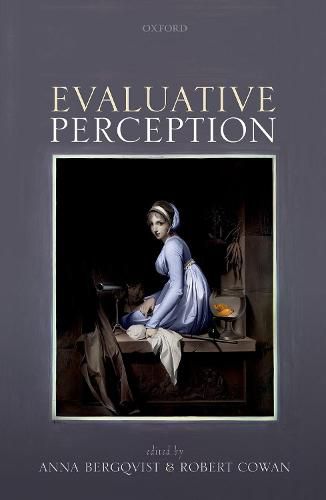Readings Newsletter
Become a Readings Member to make your shopping experience even easier.
Sign in or sign up for free!
You’re not far away from qualifying for FREE standard shipping within Australia
You’ve qualified for FREE standard shipping within Australia
The cart is loading…






Evaluation is ubiquitous. Indeed, it isn’t an exaggeration to say that we assess actions, character, events, and objects as good, cruel, beautiful, etc., almost every day of our lives. Although evaluative judgment - for instance, judging that an institution is unjust - is usually regarded as the paradigm of evaluation, it has been thought by some philosophers that a distinctive and significant kind of evaluation is perceptual. For instance, we often use perceptual language in the context of aesthetic and ethical evaluation: the Botticelli looks incredible close-up , I could hear her demeaning tone . This volume brings together philosophers to investigate what we call evaluative perception. Questions considered include: Is there such a thing as evaluative perception? Does it play an important role in providing us with evaluative knowledge? Does the existence of evaluative perception tell us anything about the nature of value?
$9.00 standard shipping within Australia
FREE standard shipping within Australia for orders over $100.00
Express & International shipping calculated at checkout
Evaluation is ubiquitous. Indeed, it isn’t an exaggeration to say that we assess actions, character, events, and objects as good, cruel, beautiful, etc., almost every day of our lives. Although evaluative judgment - for instance, judging that an institution is unjust - is usually regarded as the paradigm of evaluation, it has been thought by some philosophers that a distinctive and significant kind of evaluation is perceptual. For instance, we often use perceptual language in the context of aesthetic and ethical evaluation: the Botticelli looks incredible close-up , I could hear her demeaning tone . This volume brings together philosophers to investigate what we call evaluative perception. Questions considered include: Is there such a thing as evaluative perception? Does it play an important role in providing us with evaluative knowledge? Does the existence of evaluative perception tell us anything about the nature of value?